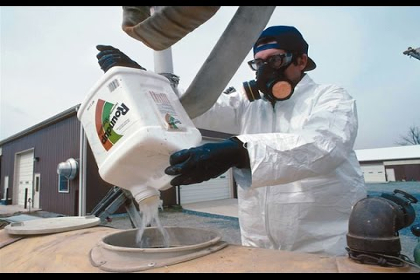
Pesticide Experts Release Shocking Review of Global Glyphosate Damage
In a “state of the science” review released Tuesday, PAN International presents a large body of research documenting the adverse human health and environmental impacts of glyphosate and glyphosate-based herbicides and underscores the need for a global phase-out.
October 12, 2016 | Source: Sustainable Pulse | by
In a “state of the science” review released Tuesday, PAN International presents a large body of research documenting the adverse human health and environmental impacts of glyphosate and glyphosate-based herbicides and underscores the need for a global phase-out.
Environmental and health advocates say the monograph on the world’s most widely used herbicide, commonly known by its original trade name Roundup, should serve as a wake up call for regulators, governments and users around the world.
Adverse human impacts detailed in the review include acute poisoning, kidney and liver damage, imbalances in the intestinal microbiome and intestinal functioning, cancer, genotoxicity, endocrine disruption, reproductive and developmental reduction, neurological damage, and immune system dysfunction.
Aggressive public relations and marketing by glyphosate’s developer, Monsanto, has resulted in the widespread perception that the chemical is ‘safe’. Registration processes continue to allow its use without raising concerns about its safety even as new data identifying adverse effects emerge.
This review dispels this myth of ‘safety’ and highlights the urgent need to re-examine the authorization of products containing glyphosate. A full chemical profile is presented, along with the regulatory status of products containing glyphosate in many countries and information on viable alternatives.
Glyphosate is included in PAN International’s “List of Highly Hazardous Pesticides” targeted for global phaseout. The global network is calling for the herbicide to be replaced by agro-ecological approaches to weed management in diversified cropping systems and non-crop situations.
